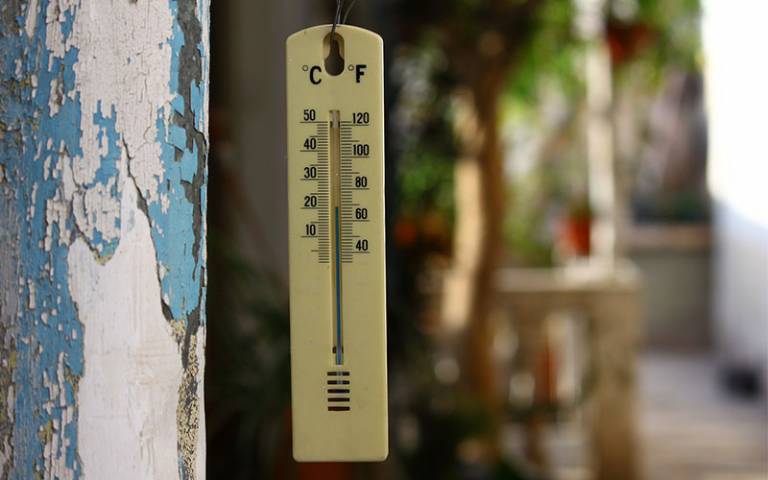BBC Radio 4 interviews Dr Anna Mavrogianni and Prof Mike Davies
10 October 2018
Dr Anna Mavrogianni and Prof Mike Davies speak to BBC Radio 4 about heat in cities.

As a part of BBC Radio 4 programme ‘Summer in the City’ Dr Anna Mavrogianni and Professor Mike Davies offered their expertise about the risks of overheating in cities and how low tech solutions around the world cane be used to reduce heat in homes.
Drawing on work from the Optihouse project work in India, Mike explained how low cost materials are being trailed to reduce heat in homes.
“In some of the dwellings we are using fly ash, which you can make bricks with an then tend to act in a way that can increase the thermal mass of the property and then tend to reduce the maximum temperatures of the property experiences. An additional approach is to modify the existing roofs of the property, previously it might have been corrugated iron which is very light weight and therefore heat up. Some of the improvements are to use a composite of very low cost materials but using mud as an insulator. The aim of all of this is to achieve a very low cost practical dwelling, which addresses as many of these criteria for health as possible and do so in a way which is replicable we hope that people will view them as an improvement and there will be not just healthier places to live in but more pleasant and comfortable. And we can learn hopefully from the feedback from the occupants to understand how the next iteration of these very low cost dwellings might be improved and made more liveable and start to think how to do that at scale.
In the interview Anna commented:
The problem with overheating at the moment is that as a risk it tends to be invisible. People often don’t take it very seriously, heatwave alerts are often perceived as barbecue alerts and the fact that we have had a warmer summer has had benefits for human health and wellbeing – but we have to remember that they are vulnerable segments of the population that are adversely affected by overheating, the elderly, the very young, the people who suffer from cardiovascular and respiratory diseases, bed ridden individuals that can’t make choices about their surroundings. It is really important to increase awareness about the risks associated with heat. Air pollution similarly is an invisible risk but awareness has increased in recent years so hopefully something similar is going to happen about heat.
 Close
Close

